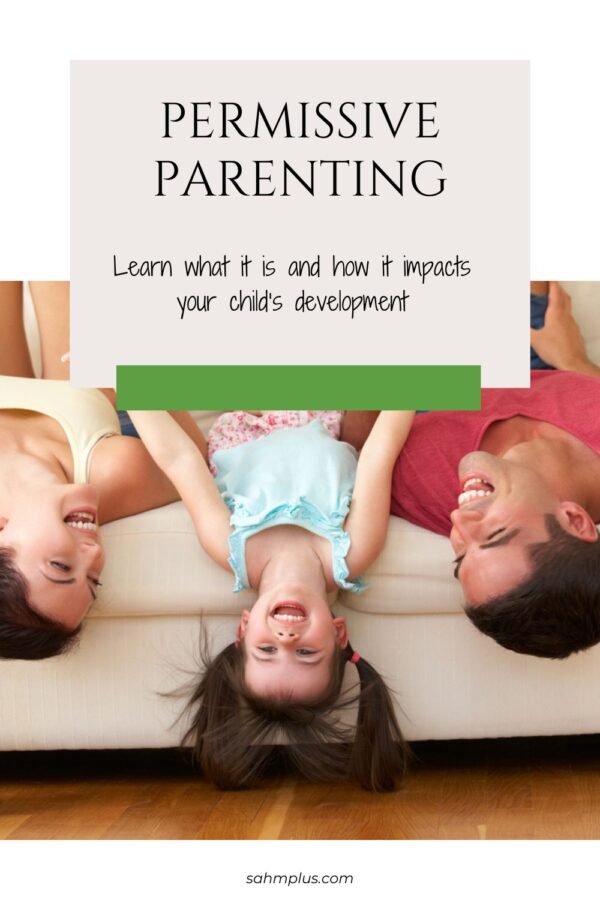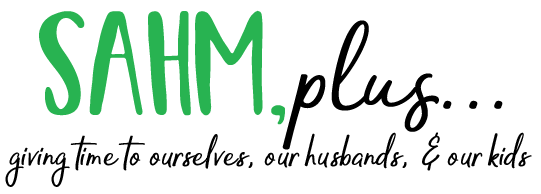We’re all on this incredible journey called parenting, and along the way, we’ve stumbled upon this interesting term: Permissive Parenting. It goes by a few names like indulgent or lenient parenting, and it’s all about taking a unique approach to raising our little ones.
Grab your coffee or tea, and let’s chat about what permissive parenting really means, the ups and downs of it, and how it can impact our precious kiddos.
Plus, we’ll explore whether or not we can find a spot between giving your kids freedom and setting some boundaries.
So, whether you’re in the thick of parenthood or just curious about different parenting styles, let’s explore this journey of raising our kids with loads of love, understanding, and maybe a sprinkle of leniency.

What is Permissive Parenting?
Permissive parenting, also known as indulgent or lenient parenting, is a parenting style characterized by a lack of rules, discipline, and structure. Permissive parents tend to be more lenient and allow their children a high degree of freedom and autonomy.
In permissive parenting, the emphasis is often placed on the child’s happiness and desires rather than setting boundaries or enforcing rules. Permissive parents may avoid confrontation or conflict with their children and prioritize maintaining a close relationship based on acceptance and support.
While permissive parenting can create an environment where children feel loved and accepted, it can also have negative consequences. Without clear boundaries and expectations, children may struggle with self-control, responsibility, and decision-making skills. They may also have difficulty respecting authority figures or understanding limits in various social settings.
It’s important to note that permissive parenting is just one of several different parenting styles, each with its own strengths and weaknesses. Understanding the characteristics of permissive parenting can help parents make informed decisions about their own approach to raising their children.
Examples of Permissive Parenting
Parenting styles can significantly impact a child’s development, and permissive parenting, while well-intentioned, can present its own unique set of challenges. Let’s delve into some illustrative scenarios that shed light on the consequences often associated with this style of parenting.
Scenario 1: The Perils of Unlimited Freedom
Consider the case of young Alex, whose parents adopt a permissive parenting style, giving him the freedom to make his own decisions from an early age. While this freedom initially fosters a sense of independence, it also leads to Alex struggling to set boundaries for himself. Without clear guidelines, he finds it challenging to understand the limits of acceptable behavior, often pushing boundaries both at home and in school. As a consequence, he faces difficulties respecting authority figures and comprehending the importance of discipline, ultimately impacting his ability to thrive in a structured environment.
Scenario 2: Inadequate Decision-Making Skills
Now, let’s look at the story of Emily, whose parents, in an effort to avoid conflict, rarely enforce rules or consequences. Growing up in an environment where her desires often take precedence, Emily becomes accustomed to having her way without considering the implications of her choices. Consequently, as she steps into adolescence and faces the complexities of decision-making, she struggles to assess the long-term effects of her actions. With limited experience in dealing with disappointment or setbacks, she finds it hard to cope with the challenges that arise, lacking the resilience needed to navigate life’s inevitable obstacles.
Scenario 3: Emotional Challenges and Insecurity
Imagine the case of young Daniel, whose permissive parents prioritize his emotional comfort over establishing clear behavioral expectations. While this approach encourages a close emotional bond, Daniel begins to experience difficulty regulating his emotions in the face of adversity. With minimal exposure to constructive criticism and guidance, he finds it challenging to handle criticism or rejection, leading to a fragile self-esteem and a fear of failure. As a result, he may struggle with taking risks or asserting himself in various social and academic settings, hindering his potential for growth and development.
These scenarios illuminate the complexities and potential drawbacks associated with permissive parenting. While a nurturing environment is vital for a child’s emotional well-being, a lack of structure and guidance can impede their ability to navigate challenges and thrive in various aspects of life. As we explore different parenting styles, it is crucial to strike a balance between warmth and guidance, fostering an environment that promotes both autonomy and responsibility, enabling children to develop the necessary skills for a successful and fulfilling future.
Permissive Parenting Style: Pros and Cons
Permissive parenting may create a nurturing environment and foster open communication between parents and children. However, there are potential negative consequences that need to be considered.
Permissive Parenting Advantages:
- Allows children to explore their creativity and individuality without feeling restricted.
- Encourages children to express themselves freely in a relaxed environment.
- Fosters open communication, leading to stronger bonds between parents and children.
Permissive Parenting Disadvantages:
- Children may struggle with self-discipline and have difficulty understanding limits in social situations.
- Low expectations can hinder their motivation to achieve their full potential.
- Overindulgence can lead to entitlement issues later in life, as children may not learn the value of delayed gratification or the importance of hard work.
Parents need to strike a balance between being supportive and setting appropriate boundaries for healthy child development.
The Effects of Permissive Parenting
The impact of permissive parenting on children is far-reaching and can manifest in various ways.
One of the most notable effects is the lack of self-discipline and poor impulse control. Without clear guidelines and expectations, children raised in permissive households may struggle to regulate their behavior and make responsible choices. This can lead to difficulties in school, relationships, and overall life success.
Additionally, permissive parenting has been linked to impulsivity and aggression. When parents fail to set limits or provide structure, children may not what acceptable behavior is.
Another concerning effect is the development of an entitlement mindset. Without experiencing appropriate consequences for their actions, children raised with permissive parenting may come to expect special treatment or believe that they are entitled to privileges without earning them. This entitlement mindset can hinder their ability to navigate challenges and setbacks later in life.
It is important to recognize that these effects are not inevitable outcomes for all children raised with permissive parenting styles. Every child is unique and may respond differently based on various factors such as temperament and external influences. However, understanding the potential consequences can help parents make informed decisions about their approach to raising their children.
Ultimately, finding a balance between providing love, support, and guidance while also setting appropriate boundaries is crucial for promoting healthy development in children.
Tips for Balancing Freedom and Discipline in Parenting
Finding the right balance between freedom and discipline is a constant challenge for parents. It involves navigating the delicate terrain of setting boundaries while allowing children the freedom to explore and grow. One approach that has gained recognition is authoritative parenting, which combines clear boundaries with love and understanding.
Authoritative parenting recognizes the importance of setting limits and expectations for children while also valuing their autonomy. It emphasizes open communication, mutual respect, and collaboration between parents and children. This approach allows parents to establish rules and consequences while still encouraging independence and self-expression.
Setting clear boundaries is crucial in maintaining a healthy parent-child relationship. Children need structure to feel secure, understand expectations, and develop self-discipline. However, it’s equally important to exercise flexibility within those boundaries to allow room for growth and individuality.
Finding the middle ground in parenting styles requires a thoughtful balance of freedom and discipline. By adopting an authoritative approach, parents can guide with empathy, understanding, and consistent enforcement of rules. This enables children to develop essential life skills such as decision-making, problem-solving, responsibility, and self-regulation.
Ultimately, striking a balance between freedom and discipline in parenting involves recognizing that each child is unique with their own needs, strengths, and limitations. It requires ongoing communication with your child to understand their perspective while still maintaining firm but fair boundaries that promote their well-being and growth.
Articles In Our Parenting Styles Series
- 4 Parenting Styles & What They Mean for Your Family
- Why Are Parenting Styles Important?
- How to Agree on Parenting Styles When Your Differences Hurt Your Marriage
- The More Children You Have, The More Your Parenting Style Changes
- Top Tips to Help You Change Your Parenting Style

FAQs About Permissive Parenting
Is permissive parenting neglectful?
Permissive parenting isn’t necessarily neglectful, but it can sometimes be misconstrued as such. Permissive parents are typically very loving and indulgent towards their children, often wanting to avoid conflict. However, the downside is that they might not set clear boundaries and expectations, which can lead to the perception of neglect. It’s essential to strike a balance between being permissive and providing structure and guidance.
Is permissive parenting harmful?
Permissive parenting can have both positive and negative effects on children. On the positive side, kids raised in permissive households often feel loved and supported, and they tend to have good self-esteem. However, the potential harm lies in the lack of boundaries and discipline. Without these, children may struggle with self-control and making responsible decisions. So, while it’s not inherently harmful, it can be if taken to extremes without any structure.
What is a weakness of permissive parenting?
One of the significant weaknesses of permissive parenting is the potential for children to lack the skills needed to navigate the real world. By not setting limits, permissive parents might unintentionally hinder their children’s ability to deal with adversity, follow rules, or make responsible choices. It’s essential to remember that life comes with its share of challenges, and learning these skills is crucial for a child’s development.
Is permissive parenting a cause of ADHD?
Permissive parenting itself is not a direct cause of Attention Deficit Hyperactivity Disorder (ADHD). ADHD is believed to have a strong genetic component and often emerges early in childhood. However, some studies have suggested that inconsistent parenting and a lack of structure could exacerbate ADHD symptoms in children. Permissive parenting’s leniency and relaxed approach to discipline may make it more challenging for a child with ADHD to develop self-regulation skills. So, while it’s not a cause, it’s essential for parents of children with ADHD to strike a balance between understanding and setting necessary boundaries to help their child thrive.
